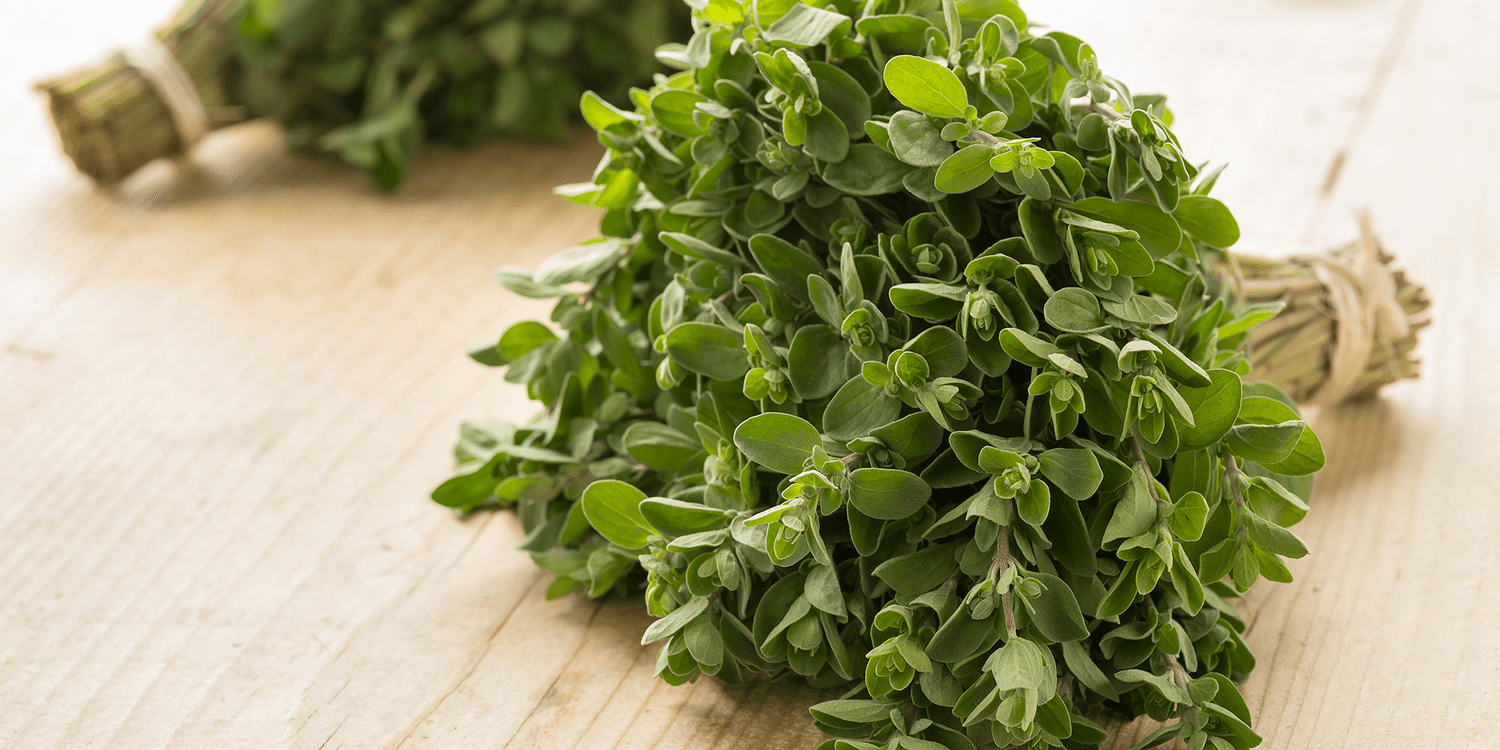Here’s what you need to know about marjoram, the ancient herb you should try using.
What Is Marjoram?
Marjoram is a perennial herbin the mint family.
Native to the Mediterranean and parts of Asia and Africa, some ancient civilizations viewed the herb as a symbol of happiness. In Greek mythology, Aphrodite, the goddess of love, grew marjoram.
The fuzzy green leaves form petite clusters that slightly resemble knots. In fact, it is sometimes called “knotted marjoram.”
The genus Origanum contains 40 species, but only one of them is considered true marjoram. The rest are considered oregano.
What Does Marjoram Taste Like?
Marjoram has an earthy and woodsy flavor, with notes of balsam-like pine and citrus. Warm, sharp, and bitter, the taste is reminiscent of oregano and thyme.
Marjoram Culinary Uses
Marjoram is used to flavor and garnish soups, stews, salads, sauces, dressings, and more. It can also be made into an herbal tea.
Dried vs. Fresh
You can buy marjoram in fresh or dried forms.
It’s best to add fresh marjoram leaves toward the end of cooking, so the flavor stays bright and intense. Dried marjoram leaves, meanwhile, are great to use in herb blends — and in any way you’d use other dried herbs.
Dried marjoram is more potent than fresh.
Marjoram Substitutes
Consider your dish when choosing which herb to substitute for marjoram. How much will the ingredient stand out among the others? If your recipe calls for fresh marjoram, use a fresh substitute. If your recipe calls for dried marjoram, however, use a dried substitute.
- Oregano: Whether it’s dried or fresh, oregano is always your best bet as far as marjoram substitution goes. Marjoram is slightly sweeter and milder than oregano, though, so it’s important to adjust your recipe accordingly.
- Thyme: Thyme and marjoram come from the same family, so it’s natural that they share some common flavors. If you don’t have any oregano on hand, use thyme.
- Basil: Another mint family member, basil could work in a pinch. However, discerning palates will be able to easily tell the difference.
Health Benefits of Marjoram
Some nutritional highlights of marjoram include:
- Marjoram is rich in antioxidants, which can have anti-inflammatory properties. Chronic inflammation may lead to chronic diseases like cancer and diabetes.
- Though its effectiveness has not been definitively proven, some research suggests marjoram may have antimicrobial uses. This means it may help to treat things like fungal infections and bacterial overgrowth in the gut.
Marjoram Recipes
Here are some of our favorite recipes that highlight the earthy-tasting herb:
- Herbed Pork Chops with Homemade Rub
- Split Pea Soup
- Herbs de Provence
- Chicken Manicotti Alfredo
- Fettuccine with Garlic Herb Butter
- Kielbasa
- Marjoram and Citrus Fish Marinade




